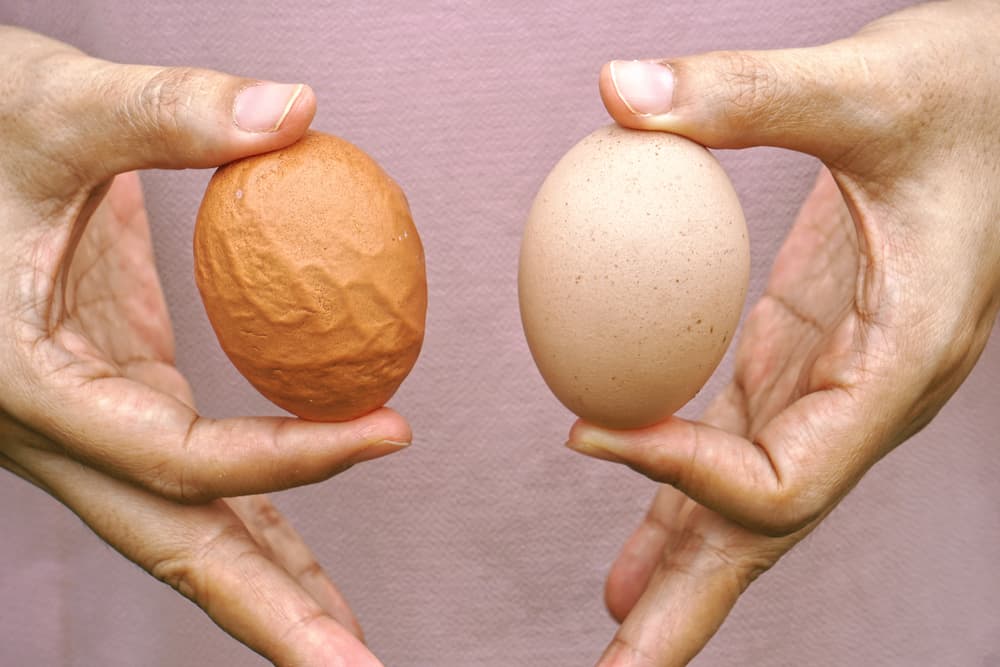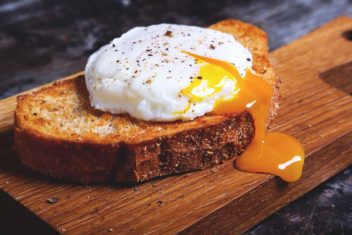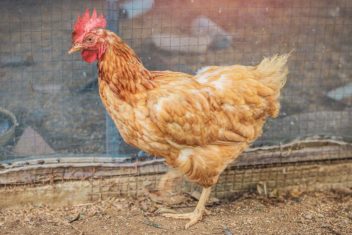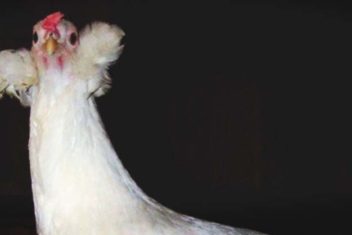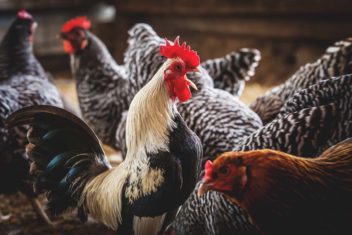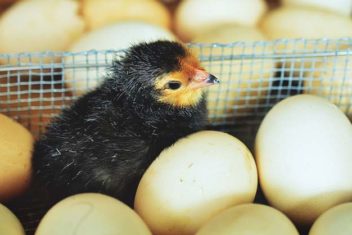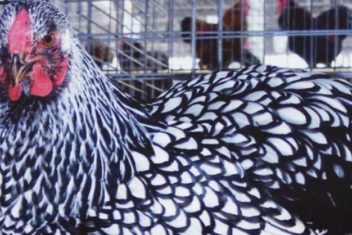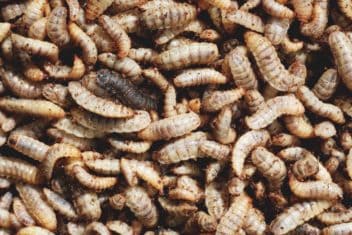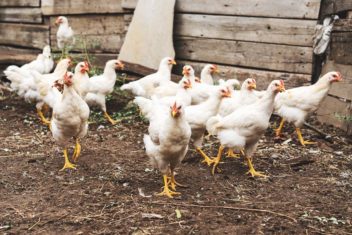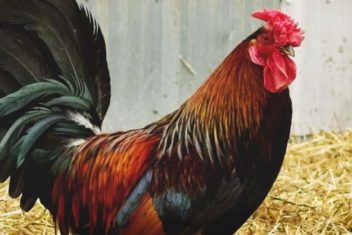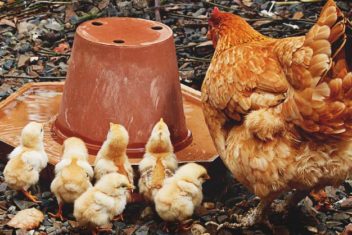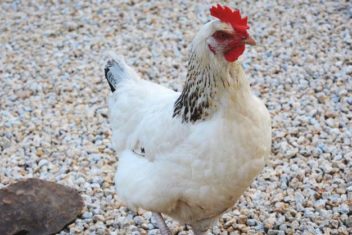Anyone with chickens knows they can fall ill seemingly overnight. They’re robust little creatures and often won’t show any signs of problems until you find them sickly (or worse) one morning.
Often, those illnesses can be because of a lack of nutrients like calcium in their diet. Imagine laying an egg a day, and not having the proper nutrients to achieve that.
Chickens need plenty of calcium, and there are easy ways to ensure that they get the right amount. Calcium deficiency in chickens is essential to understand, so let’s talk about hypocalcemia (as calcium deficiency is known).
Why Chickens Need Calcium
Before tackling the topic of calcium deficiency in chickens, let’s examine why these birds need it and why it’s important. Many people think it is just for the eggshells, but it is required for much more. Chickens need calcium for:
- Blood clotting: Hens tend to peck at each other, and often blood is drawn, so they need to be able to clot for healing and wound protection.
- Controlling muscle spasms: This is especially so for the muscles used to lay eggs.
- Hormone production. This is important for continuous egg production.
- Bone development and maintenance: With so much going into the production of eggs, there also needs to be enough for the bones.
- Heart rate control: This is especially necessary in hot weather.
- Activates enzymes in the stomach: Healthy digestion equals a healthy bird.
- Helps absorb phosphorous: This is another essential mineral that chickens need and won’t absorb appropriately without enough calcium.
Signs of Calcium Deficiency in Chickens
It’s important to note that diagnosing chickens is a tricky task at the best of times, so consider all possibilities when your chicken seems to be sick. Calcium deficiency in chickens is extremely common, though, if the flock doesn’t get a balanced diet.
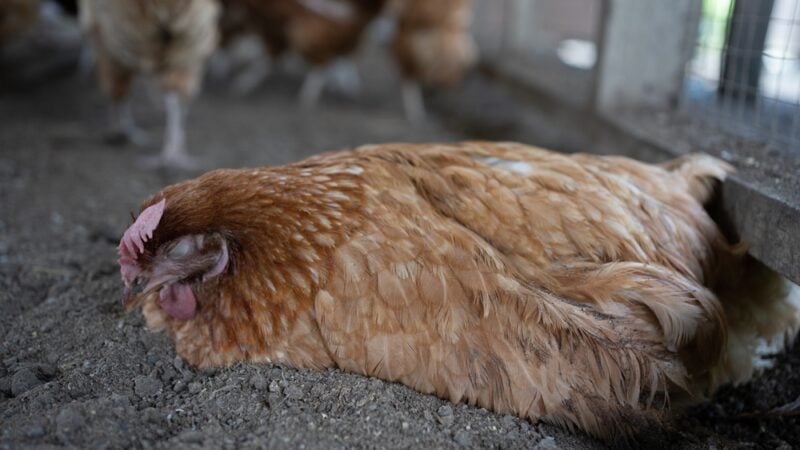
Often, sicknesses are a result of calcium deficiency, so prevention can save a lot of battles health-wise.
One common symptom of calcium deficiency in chickens is feather loss. Chickens will go through a molt around late summer to early fall. This is normal.
If your chickens start to lose feathers outside of this time, and it doesn’t seem to be because other chickens are pecking them or because predators have made a go at them, it could be because of calcium deficiency.
Egg eating is another symptom to watch for. Chickens are pretty smart and can identify when they are deficient in calcium. They will eagerly eat the shells of eggs in the nests if needed.
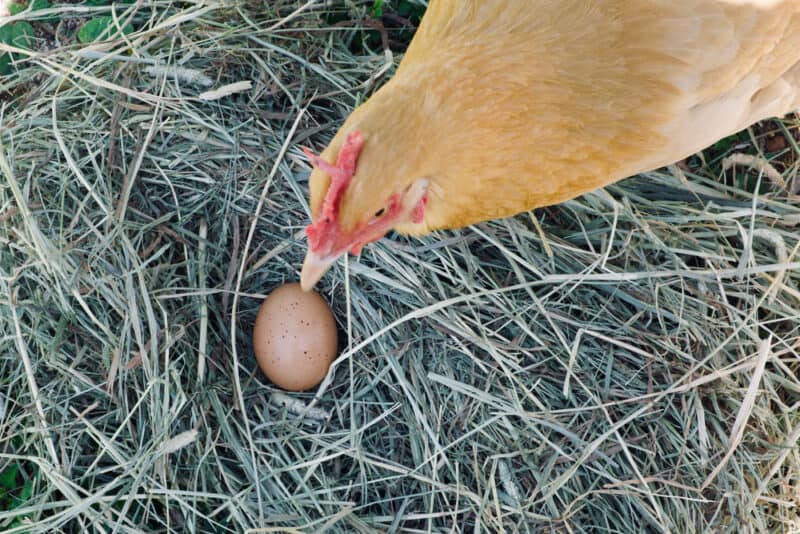
Chickens need calcium to stop issues with the muscles required to lay eggs. If you find the chickens are egg-bound, it could be due to a calcium deficiency.
Thin or soft shells are a common sign of calcium deficiency in chickens. Eggs will be very soft, break easily, be rough rather than smooth, or have no shell.
Calcium deficiency will affect the chicken’s immune system. As a result, she will likely be constantly sick.
A chicken is like a human; if they have a calcium deficiency, the bones become weak and break easily.
Calcium deficiency in chickens often shows up as rickets. The signs of this are usually, but not limited to: lack of growth compared to others in the flock, constant sitting or avoiding using their legs, weight loss, limb swelling, and soft beak.
Some breeds will tell you they’re sick by reducing the number of eggs they lay.
For instance, brown shavers and hylines are frequent and consistent layers and should lay an egg a day at their peak. If they don’t, it could be because they aren’t getting enough calcium in their diet.
If a prolific layer is calcium deficient, she will ‘borrow’ calcium from her bones to lay an egg. She then needs to rest to replenish the calcium in her bones. You must look for other signs in heritage breeds that don’t lay as prolifically.
When to Give Chickens Extra Calcium
Although you should give chickens plenty of calcium as a matter of course, there are times when you should provide extra in order to avoid calcium deficiency in chickens:
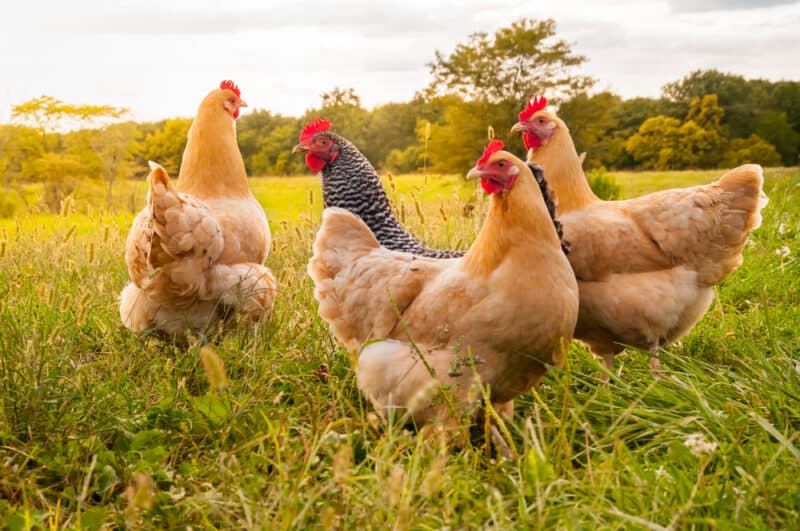
- In summer or unseasonably hot weather: Hot weather or high humidity can cause an inefficient calcium uptake. If it’s hot and humid, give your flock extra calcium.
- Times of high egg production: This usually occurs in spring and summer (though may be different for your flock.) If you are amazed at the amount of eggs your ladies are laying, it’s a good time to give them extra calcium.
- Poor digestion: Chicken poop is usually relatively uniform in size, shape, and consistency. If you notice a chicken whose bowel movements have changed, provide a bit more calcium and see if this helps.
- When you treat your chickens: If you like to give your chickens lots of kitchen scraps, there is nothing wrong with that, but if you do, give them extra calcium to make sure they are getting enough.
- Older chickens: If you have older chickens in your flock, make sure there is plenty of extra calcium for them to forage if they need it. The younger ones are possibly okay, but the older ones will help themselves if needed.
- Sickness: If one or more of your chickens have been or are sick, give the whole flock extra calcium, or at least provide the option for them to decide to help themselves.
How to Provide Supplemental Calcium to Your Chicken Flock
There are many methods to provide supplemental calcium on a case-by-case basis or as a matter of course. These are the most efficiently absorbed calcium sources for chickens:
Oyster shells: These are popular and are the supplement most likely available in local stores. On average, oyster shell contains about 38% calcium that is absorbed by the chicken.
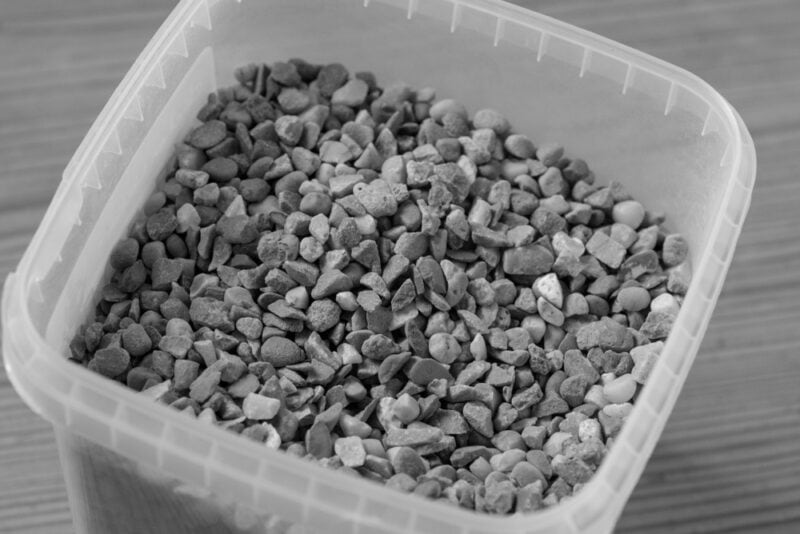
Make sure the oyster shell pieces are no larger than the size of a pea. You want them to remain in the digestive tract as long as possible to absorb the maximum amount of calcium.
Limestone: This is sometimes known and sold as calcium carbonate. It is usually cheaper than oyster shell, but is also not as efficiently absorbed because it moves through the chicken’s digestive tract quickly. Limestone can contain more impurities than oyster shells.
Diatomaceous earth: This is made of fossilized algae and can be an excellent supplement to your chicken’s diet. If you want to up their calcium and treat them for worms simultaneously, use diatomaceous earth. DE is not a worm treatment itself, however.
What Not to Give Chickens to Supplement Calcium
Sometimes, people give their chickens certain things thinking that because it’s good for humans or other animals, it will also be good for chickens. This isn’t always the case. Avoid these things:
Milk: Although we can ingest and absorb calcium from milk, chickens can not. You will likely cause them to suffer from diarrhea. This can be an issue for the whole flock and cause several other problems, like in humans, including dehydration.
Raw eggshells: The raw eggshell can often contain salmonella or other contaminants. It can also cause the chickens to peek and eat eggs in the nest.
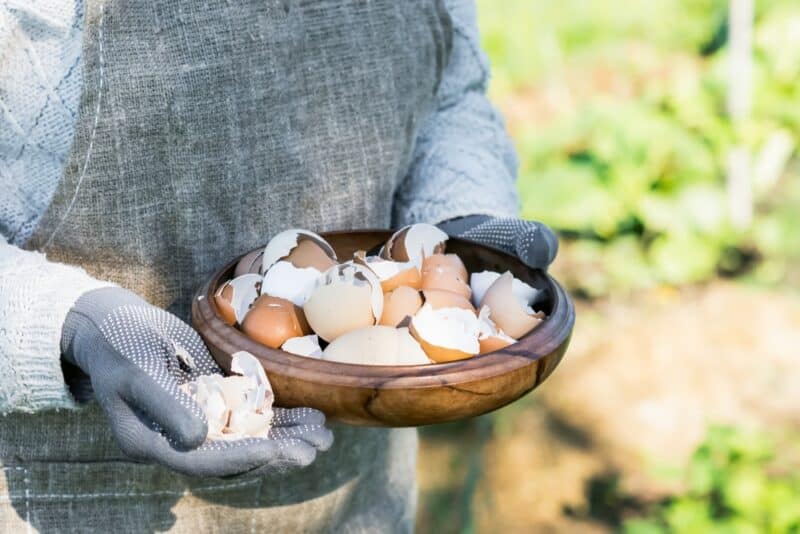
Dolomite limestone: Not bad in itself, dolomite limestone (calcium magnesium carbonate) is not suitable for chickens like limestone can be (calcium carbonate). Dolomite contains higher levels of magnesium, which affects the ability of the chicken to absorb calcium efficiently.
Agricultural limestone: If it is meant to be used as a fertilizer, it isn’t suitable for chickens. With variable levels of calcium and poor absorption, avoid this.
Increase Phosphorus and Vitamin D along With Calcium
When you provide supplemental calcium to chickens, you should also provide phosphorus and vitamin D. This is to ensure calcium absorption is efficient.
Give the chickens your meat and fish offcuts. Only give them enough that they will eat. You don’t want to attract rats or other vermin.
Also, consider providing cooked and mashed up egg, cooked or raw broccoli, or sunflower seeds.
How to Avoid Too Much Calcium
You can easily give chickens too much calcium in your attempt to provide them with the right amount. This is quite common for inexperienced homesteaders who want the best for their chickens.
This is what to look out for when you need to identify excess calcium in your chickens diet:
- Reduced feeding: If your chickens stop eating so much and nothing else seems to be wrong with them, it could be they have enough calcium, and they decide to slow down on eating.
- Pimply eggs: This is possibly the most common symptom.
- Rough ends of the eggs: This is a result of calcium deposits at each end of the egg. You could also describe this as chalky ends.
How to Avoid Calcium Deficiency
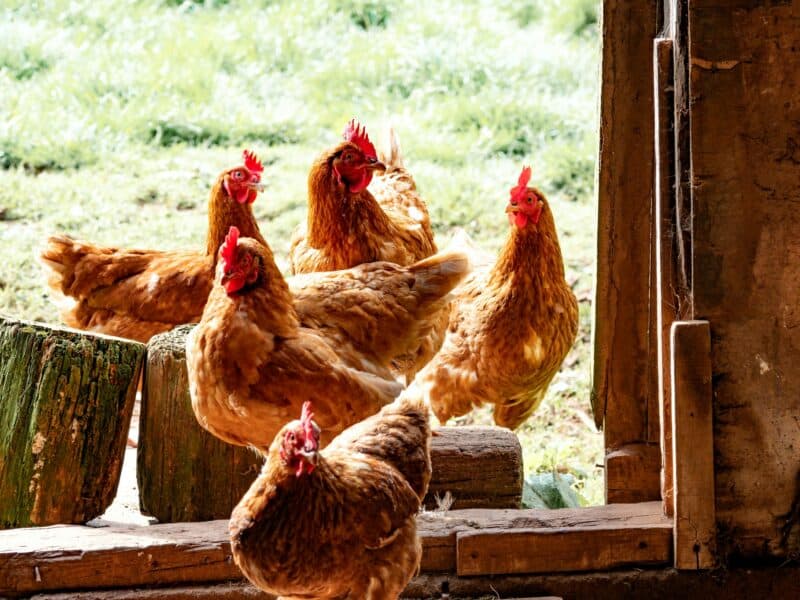
It’s best to avoid calcium deficiency before it becomes a problem, and here are some tips:
Buy the best quality commercial feed that you can. Most well-balanced feeds have sufficient levels of calcium.
In the heat of summer, make sure the chickens have shade and plenty of clean water.
Provide electrolytes to your chickens in their water.
Provide oyster shells all year round and let the chickens help themselves.
